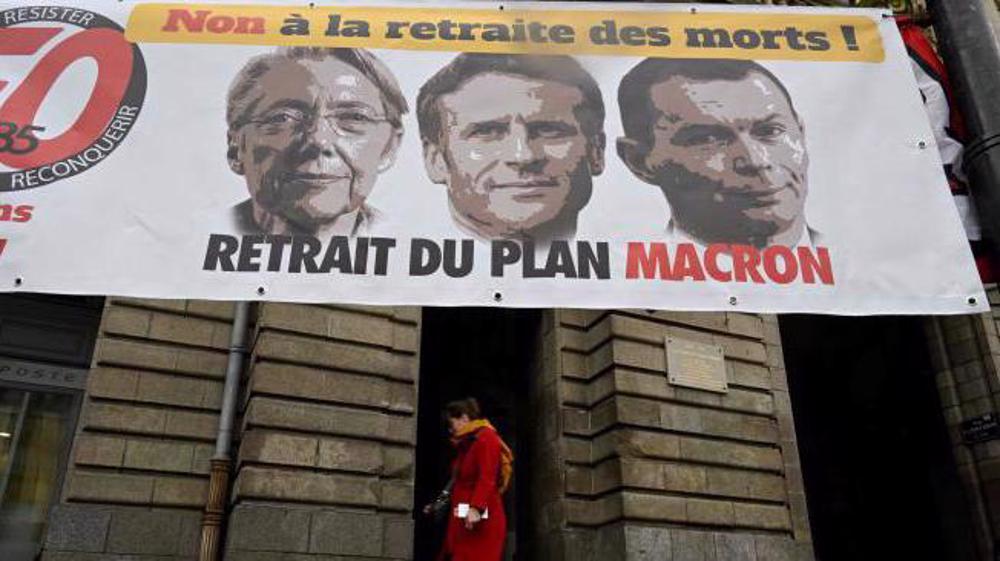Hundreds of thousands protest across France against Macron's pension reforms
Hundreds of thousands of people have taken to the streets in France again for a fourth round of protests against President Emmanuel Macron's plans to reform pensions.
French lawmakers began a debate earlier this week on the pension bill to raise the minimum retirement age from 62 to 64. President Macron says the reform is "vital" to ensure the viability of the pension system.
Protesters took to the streets on Saturday to keep up pressure on the government over its plans to make people work longer before retiring.
Unlike on the three previous protest days there was no call for a day of nationwide strikes, although air traffic controllers at Paris' second airport staged a surprise walkout that resulted in the cancellation of half of flights.
The CGT union said that 500,000 people were protesting in Paris alone, higher than the 400,000 it counted on the last protest day on February 7.
Laurent Berger, head of the CFDT union, the country's largest, said on Friday that some 250 demonstrations were planned across the country.
"I am expecting a lot of people. We need to be extremely numerous," he said, adding that "there is a form of contempt (from the government). There is no answer to the (social) movement and there needs to be one."
After three days of nationwide strikes since the start of the year, strikes will not hit transport services this time. However, the leading unions have warned that they would seek to bring France to a standstill from March 7 if their demands were not met. A strike is already scheduled for Feb. 16.
In a joint statement on Saturday, the unions called for the government to withdraw the bill.
"If the government continues to remain deaf then the inter-union grouping will call for France to be shut down," they said ahead of Saturday's marches.
Pushing back the retirement age by two years and extending the pay-in period would yield an additional 17.7 billion euros ($19.18 billion) in annual pension contributions, allowing the system to break even by 2027, according to Labour Ministry estimates.
Unions say there are other ways to do this, such as taxing the super-rich or asking employers or well-off pensioners to contribute more.

US, France want mercenaries deployed in south Lebanon: Report

French immigration language test sets applicants for failure: Report

NATO faces 'moment of truth' on future of military alliance: France
US special envoy in Kiev amid war of words between Trump, Zelensky
Hamas says ready to free all Israeli captives at once in phase two of truce
Israel kills one, injures two in southern Lebanon: Media
‘Colonial powers’ have no right to determine fate of Palestine: Qalibaf
Explainer: Why are MK-84 2,000-lb bombs approved by Trump for Israel so deadly?
President Pezeshkian: Iran, Qatar opening new avenues for cooperation
VIDEO | Displaced return home despite destruction
IRGC unveils new homegrown smart missiles, drones drill









 This makes it easy to access the Press TV website
This makes it easy to access the Press TV website